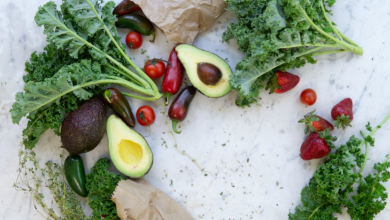Nutrition for Optimal Gut Health

Eating for a Happy Gut: Simple Tips and Foods
You might be surprised to know that your gut health affects more than just digestion. It can impact your overall well-being, mood, sleep, and even skin health. If you’re dealing with gut issues, understanding and improving your gut health is crucial. This involves knowing about the microorganisms in your gut and how prebiotics and probiotics can help these beneficial microbes flourish.
Getting to Know Your Gut Bacteria
Your digestive system is home to a complex mix of helpful microorganisms, including bacteria, fungi, and viruses. This microbiome assists in nutrient absorption, fights off harmful germs, helps in digestion, and even plays a role in mood regulation through serotonin production. Maintaining a healthy balance in your microbiome is key to avoiding disorders and illnesses.
The Role of Probiotics
Probiotics are live microorganisms found in foods and supplements. They help maintain a healthy balance in your gut. Foods like yogurt, kefir, sauerkraut, and kimchi are excellent natural sources. Since probiotic supplements aren’t strictly regulated, it’s wise to consult your doctor for advice on choosing the right ones.
The Importance of Prebiotics
Prebiotics are what your gut bacteria feed on. These can be found in various foods and help in producing beneficial acids, boosting immunity, and promoting regular bowel movements. They also support serotonin and hormone production.
Recognizing an Unhealthy Gut
An imbalanced gut can lead to a range of symptoms, such as stomach discomfort, food intolerances, unusual cravings, fatigue, sleep troubles, mood swings, and even autoimmune issues.
Foods for Gut Health
If you’re experiencing gut discomfort, eating the right foods can make a big difference. Foods rich in probiotics and prebiotics can support a healthy gut.
- Bananas: Rich in inulin, a prebiotic fiber.
- Yogurt: Look for brands with the Live & Active Cultures seal for a probiotic boost.
- Fermented Foods: Kimchi, miso, and fermented sausages are probiotic powerhouses.
- Whole Grains: They’re not only fibrous but also packed with nutrients like omega-3 fatty acids.
- Leafy Greens: Loaded with prebiotic fiber and essential nutrients.
- Peas: Another fiber-rich addition.
- Olive Oil: Offers anti-inflammatory benefits.
- Garlic: Contains inulin, just like bananas.
- Ginger: Known for its gut-soothing properties.
Making Gut-Healthy Meals
Look for gut-friendly recipes online or consult health books for ideas. Incorporating these foods into your meals can significantly improve your gut health.
Additional Tips for Gut Wellness
Staying hydrated, exercising regularly, and reducing processed sugars and unhealthy foods can greatly benefit your gut. If you smoke or drink alcohol, cutting back or quitting can also help. Remember, a healthy gut contributes to a healthy life, so focus on a diet that includes probiotics and prebiotics. Always check with your doctor for personalized advice on improving your gut health.




